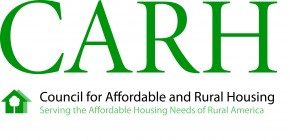- November 2022
- October 2022
- September 2022
- August 2022
- July 2022
- June 2022
- May 2022
- April 2022
- March 2022
- February 2022
- January 2022
- December 2021
- November 2021
- October 2021
- September 2021
- August 2021
- July 2021
- June 2021
- May 2021
- April 2021
- March 2021
- February 2021
- January 2021
- December 2020
- November 2020
- October 2020
- September 2020
- August 2020
- July 2020
- June 2020
- May 2020
- April 2020
- March 2020
- February 2020
- January 2020
- December 2019
- November 2019
- October 2019
- September 2019
- August 2019
- July 2019
- June 2019
- May 2019
- April 2019
- March 2019
- February 2019
- January 2019
- December 2018
- November 2018
- October 2018
- September 2018
- August 2018
- July 2018
- June 2018
- May 2018
- April 2018
- March 2018
- February 2018
- January 2018
- December 2017
- November 2017
- October 2017
- September 2017
- August 2017
- July 2017
- June 2017
- May 2017
- April 2017
- March 2017
- February 2017
- January 2017
- December 2016
- November 2016
- October 2016
- September 2016
- August 2016
- July 2016
- June 2016
- May 2016
- April 2016
- March 2016
- February 2016
- January 2016
- December 2015
- November 2015
- October 2015
- September 2015
- August 2015
- July 2015
- June 2015
- May 2015
- April 2015
- March 2015
- February 2015
- January 2015
- December 2014
- November 2014
- October 2014
- September 2014
- August 2014
- July 2014
- June 2014
- May 2014
- April 2014
- March 2014
- February 2014
- January 2014
Continuing Resolution for FY 2019 Signed by President—Government Programs Funded through December 7, 2018
CARH’s BROADCAST EMAIL – Legislative Update
September 28, 2018
President Trump today signed into law H.R. 6157 – Department of Defense and Labor, Health and Human Services, and Education Appropriations Act, 2019 and Continuing Appropriations Act, 2019 (Public Law number has yet to be assigned). This legislation is a short-term Continuing Resolution (CR) for Fiscal Year (FY) 2019, and will keep the agencies whose appropriations were not approved in the legislation, funded through December 7.
While both the House and Senate Appropriations Committees have reported their versions of the HUD and USDA spending bills (HUD – H.R. 6072 and S. 3023; USDA – H.R. 5961 and S. 2976), neither the full House or full Senate acted on these bills. As was reported in the August 7th Broadcast Email, the Senate, and in early September the House, passed a series of “minibus appropriations measures – H.R. 6147 – that contained funding for both HUD and USDA’s housing programs. Unfortunately, a conference committee was not able to resolve the differences between to the two passed versions of H.R. 6147.
The CR was cleared by the House of Representatives on September 26th by a vote of 361-61 and by the Senate on September 19th by a vote of 93-7. The CR runs through December 9, requiring lawmakers to return to Washington for a lame duck session after the November elections to pass full year appropriations for the remaining agency appropriations bills.
It is unclear as to how long Congress will be in session when they return after the November elections. While most lame-duck sessions do not result in major legislation that alters existing law, it is possible that the session in December could be different if there is a shift in the majority party. Therefore, it is important that CARH members continue their grassroots contacts with their members of Congress and staff.
CARH members are encouraged to use the prepared issue briefs outlining CARH’s positions on both funding, housing policy and tax issues, particularly legislation which would enhance the housing credit and housing bond programs. The three relevant issue briefs are: Housing Credit and Housing Bond Programs, Rural Housing and Role of Affordable Rental Housing in Rural America, and Infrastructure and Rural Housing. These issue briefs were used in recent Congressional meetings by CARH’s board of directors on September 5th during their most recent board meeting. In addition, use this time that members of Congress are in their districts and states and invite them and their staffs to your properties so that they can see first-hand the work you do for rural affordable housing.
Please contact the CARH national office at carh@carh.org or 703-837-9001 should you have questions.





